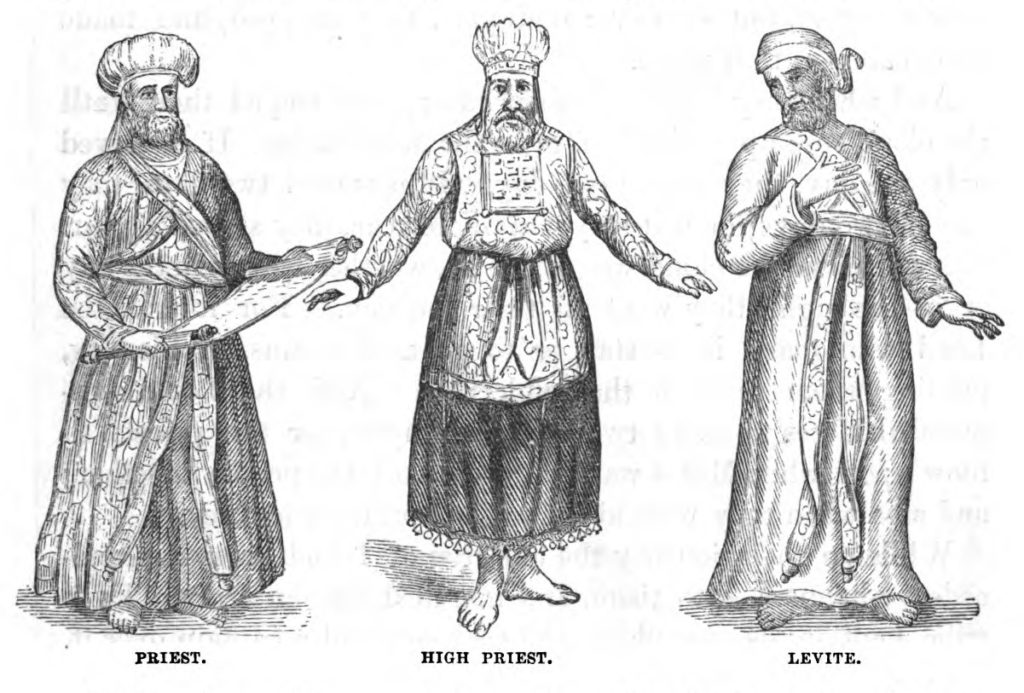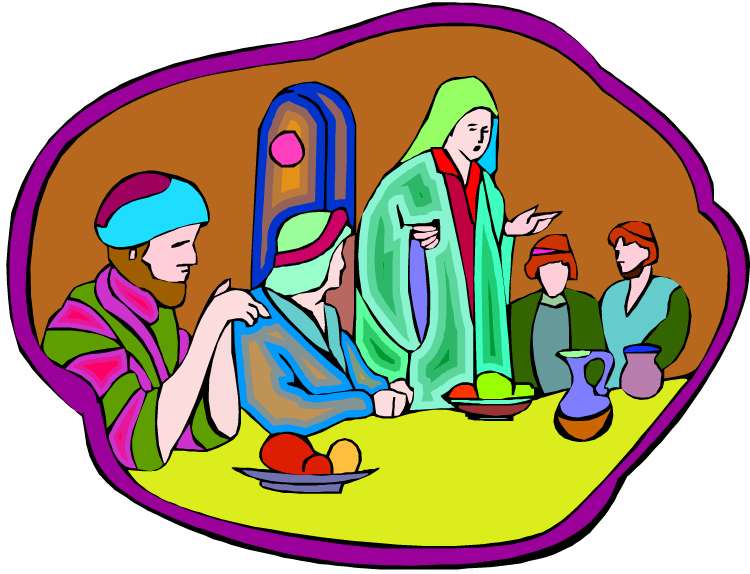
Exodus 28
Scripture reveals that the saints are to be a holy or set-apart (kadosh) priesthood,
not a profane (worldly and polluted) one. Which are you? Kadosh or profane?
YHVH Is Preparing His Saints to Be a Kingdom of Priests
In the Bible, YHVH declared that it was the destiny of the Israelite nation to become a kingdom of priests (Exod 19:6). As such, he commissioned them to become a light to the heathen nations around them and to lead them to YHVH—the one true Elohim (Deut 4:6–8). This is why YHVH in his sovereignty positioned the nation of Israel at the crossroads of the major trade routes of the ancient world—between three continents: Africa, Asia and Europe. Israel did not fulfill this prophetic destiny because of sin and rebellion. They desired to conform their lives to the standards of the wicked nations around them rather than conform to YHVH’s standards of righteousness as revealed in the Torah-law. While ancient Israel failed in its divine mission to evangelize the world, in these last days, through Yeshua the Messiah, YHVH has raised up his people (the Israel of Elohim, Gal 6:16) to be that holy priesthood tasked with spreading the good news of the kingdom of Elohim globally (1 Pet 2:9; Dan 7:18; Rev 1:6; 5:10; 20:6; Isa 66:21). Let us now explore how YOU be a part of fulfilling this divine commission.
First, who are you? Knowing this will enable you to understand your divine calling and mission.
Those who come to faith in Yeshua the Messiah become children of Abraham and are thus Israelites (Rom 4:16; 9:8-11; Gal 3:7, 9, 14, 28-29) who have been grafted in to the olive tree of Israel (Rom 11:11–32); they are the current “Israel of Elohim” (Gal 6:16). Ancient Israel never fulfilled its divine calling to be a kingdom of priests and a light to the nations of the world. YHVH’s calling and purposes for Israel are without repentance (Rom. 11:29). What ancient Israel failed to accomplish because of disobedience, rebellion and faithlessness will be left to grafted in Israel—the one new man in Yeshua the Messiah—to accomplish. Yeshua commissioned his disciples to preach the good news (or gospel) of the kingdom of Elohim to the world (Mark 16:15; Acts 1:8). But more than that, his disciples were to become that kingdom of priests that ancient Israel missed the opportunity to become.
We read in the Testimony of Yeshua (or New Testament) that the saints of YHVH will be called kings and priests (or a kingdom of priests) of YHVH-Yeshua the Messiah and will reign with him during the 1000-year Millennium or Messianic Age.
[T]o him, the one who loves us, who has freed us from our sins at the cost of his blood, who has caused us to be a kingdom, that is, cohanim [priests] for YHVH, his Father… (Rev 1:5–6, CJB)
[At] the cost of blood you ransomed for YHVH persons from every tribe, language, people and nation. You made them into a kingdom for YHVH to rule, cohanim [priests] to serve him and they will rule over the earth. (Rev 5:9–10, CJB)
Blessed and set-apart is anyone who has a part in the first resurrection; over him the second death has no power. On the contrary, they will be cohanim [priests] of YHVH and of Messiah, and they will rule with him for the thousand years. (Rev 20:6, CJB)
During the Millennium, Messiah will be the King of kings. His government will be a theocracy with him, as the High Priest-King, at the head. The children of Israel operated under a theocratic from of government with Moses as the priest-king (he was from the priestly tribe of Levi and was called a king in Deut 33:4-5) as the human head of state. David Stern in his Jewish New Testament Commentary (p. 10) describes the role of the biblical priest to be like that of a prophet and to serve as spokesman and mediator between YHVH and man. The prophet speaks to man on behalf of YHVH, the priest to YHVH on behalf of man. In terms of practical job-description their primary duty was to offer sacrificial animals on the altar.
Of those who will be the priests to reign with Messiah during the Millennium, Christian commentator Matthew Henry says in his commentary on Revelation 1:5-6 that Messiah has made believers kings and priests to YHVH and his Father. As such they overcome the world, mortify sin, govern their own spirits, resist Satan, prevail with YHVH in prayer, and shall judge the world.”
This is an apt description of those who will qualify to become priests in YHVH’s kingdom, but let’s define some words Henry uses in his descriptions. How does Scripture define sin? Sin in its simplest definition is the transgression of YHVH’s Torah-law (1 John 3:4). Henry says that the Saints as priests will “judge the world.” What does this mean? Do you know of any secular judge who makes judgments without following some legal code upon which civil law is based? Of course not. What legal code is Scripture based upon? The Torah-law YHVH gave to the children of Israel through Moses. In numerous places YHVH instructed the priests and kings of that time to rule and judge on the basis of his Torah-law. When they failed to do so YHVH sent prophet after prophet to warn them to turn from their wicked ways and return to following YHVH’s laws.
What standard of righteousness do you think YHVH’s kings and priests will rule and judge from during the Millennium? There is only one standard of truth outlined in Scripture: that is the Torah (Ps 119:142, 151), which is YHVH’s Torah, which by strict etymological and scriptural definition simply means YHVH’s “instructions, teachings and precepts in righteousness.” Since YHVH’s standards of righteousness do not change, for his character and nature do not change (Mal 3:6) despite what religious men may say or do, it stands to reason that YHVH’s kings and priests will be Torah-obedient set-apart or holy ones (or the saints). In fact, this is how the book of Revelation defines the saints: they keep the Torah-commandments of YHVH and have faith in Yeshua the Messiah (Rev 12:17; 14:12). Yeshua goes on to say in Matthew 5:19 that those who keep his Torah-law will be called the greatest in his kingdom (i.e. they will be kings and priests), while those who do not keep his Torah-law will be called the least in his kingdom. In other words, the higher the level of obedience to Torah the higher will be one’s rewards and responsibilities in YHVH’s kingdom. Yeshua told his disciples that if they loved him they would keep his (Torah) commandments (John 14:15, 21).
The Saints Are Called to Be a Set-apart (Kadosh) Nation
If you have repented of your sins, been washed in the blood of the Lamb and been born of the Holy or Set-apart Spirit (Heb. Ruach haKodesh) you are part of a set-apart priesthood. This is your identity according to Scripture. Get this into your spirit and every day live out the reality of it!
Continue reading




